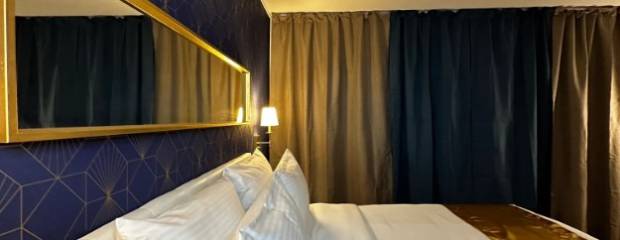Jim White was one of eight people arrested in 2023 in a police investigation into two counterfeiting rings that produced and sold thousands of forged Morrisseaus.Adrian Wyld/The Canadian Press
An 84-year-old art dealer who pleaded guilty last week in a sprawling investigation into the distribution of counterfeit Norval Morrisseau artwork bought around 500 fakes for more than $450,000 and then distributed them across Canada, according to an agreed statement of facts released Wednesday.
The document outlines his role in selling forgeries, while peeling back another layer of what investigators call the biggest case of art fraud in Canadian history, a major scheme that has tarnished the late Anishinaabe artist’s legacy.
The dealer, Jim White, was one of eight people arrested in March, 2023, as part of Project Totton, a years-long police investigation into two counterfeiting rings responsible for producing and selling between 4,500 and 6,000 fake Morrisseau works, according to officers.
How an unsolved murder landed a homicide detective in the middle of the world’s biggest art-fraud case
Two of the eight accused had previously pleaded guilty, and charges against at least one other have been withdrawn. Investigators had anticipated that Mr. White – along with two other defendants, David Bremner and Jeffrey Cowan, whose cases are still pending – would go to trial.
Last week, before the Ontario Superior Court of Justice in Newmarket, Ont., Mr. White pleaded guilty to uttering forged documents and possessing property obtained by crime for the purpose of trafficking.
“We were quite taken aback when we were notified that there was a potential plea agreement in place for Jim White,” said Thunder Bay Police Inspector Jason Rybak, who co-led Project Totton.
Once called Picasso of the North, Mr. Morrisseau died in 2007 having earned international renown. His work featured vibrant colours and depictions of people and animals outlined in thick black lines, a style that came to be called the Woodland School. First Nations leaders say Mr. Morrisseau’s art has been instrumental in helping to explain their history.
According to the agreed statement of facts, Mr. White began selling Morrisseau works in 1999. Back then, most of the works he distributed originated from one of the co-accused, David Voss, who last year admitted in court that he had counterfeited upwards of 1,500 works falsely attributed to Mr. Morrisseau.
Mr. White admits no wrongdoing related to the Voss fakes. He tried to verify their authenticity by commissioning handwriting analyses, affidavits and other documents attesting to their provenance.
In 2016, he turned to a new source of Morrisseaus: Mr. Cowan.
Sophisticated crime and fake art: the growing push for Canada to create a specialized art crime team
He says he met Mr. Cowan and viewed a number of Morrisseaus that raised several “red flags.” Despite carrying 1980s dates, they appeared to be “newer” and the English signatures didn’t conform with earlier Morrisseau signatures he’d seen.
What’s more, Mr. Cowan sold the art from his garage in St. Thomas, Ont., and only accepted cash or e-transfers. Mr. White states that he was told Mr. Cowan acquired the art from a deceased uncle as well as from a former lover of Mr. Morrisseau’s.
Despite harbouring suspicions that the works were forgeries, Mr. White “purposely turned a blind eye” to anything that might undermine their legitimacy, the document states. Between 2016 and 2021, he made 44 trips to Mr. Cowan’s home to buy more than 470 forgeries. Mr. White pegged total costs at more than $450,000.
To hide the art’s provenance, Mr. White enlisted an appraiser, Mr. Bremner, to create certificates that declared the Cowan paintings to be authentic.
The allegations against Mr. Cowan and Mr. Bremner have not been tested in court.
Mr. White would then sell or consign the forgeries to auctioneers and galleries across Canada that would, in turn, sell them to the public.
His fortunes began to shift in 2019 with the release of There Are No Fakes, a documentary that identifies Mr. White and others as major forces behind a shadowy counterfeiting scheme. The police investigation began shortly after its release.
In 2021, police executed a search warrant on Mr. White’s home and seized 59 forgeries traced to Mr. Cowan, along with 114 prints of forgeries and numerous certificates of authenticity, many affixed with a stamp from the Morrisseau Family Foundation, an organization formed by Mr. Morrisseau’s sons and daughter around the time of his 2007 death.
Jonathan Sommer, a lawyer who has represented several unwitting buyers of Morrisseau fakes, said the appearance of a foundation stamp needs to be further explored.
“It’s a positive step to have more information about how the fraud rolled out over time,” he said. “But the larger story still has massive gaps.”
Police also seized $30,700 from a floor safe, funds Mr. White admits are the proceeds of crime.
Mr. White has declined through his lawyer to comment on the guilty plea. His sentencing is scheduled for Aug. 7.











![3rd Jul: DAN DA DAN (2025), 2 Seasons [TV-MA] – New Episodes (7.1/10)](https://occ-0-1081-999.1.nflxso.net/dnm/api/v6/Qs00mKCpRvrkl3HZAN5KwEL1kpE/AAAABQbeB5ciy-Hd4CS8coQWRe7-AVPbAfhsJrd9rh0YplT8qaDK5TbMSE0OCpU9WgayLNeIps9APFKK2fUYH8kZWS7IYM23I6hdA-wFTCQ-jabtkZCwGUY26EKNVooDqCSrOfzqwKqzEcPLt6Fn-6U0F59vK0fO25ieHbtLpoQB.jpg?r=bf9)
